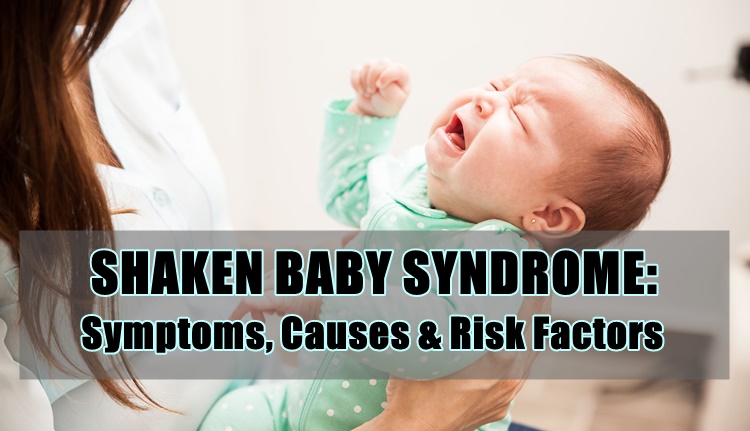Here are the symptoms, causes, and risk factors of the shaken baby syndrome
SHAKEN BABY SYNDROME – This condition is also called abusive head trauma, shaken impact syndrome, inflicted head injury or whiplash shake syndrome.
It is considered as a serious brain injury which is a result when the baby (infant or toddler) is forcefully shaken. This condition is a form of child abuse which destroys the brain cells of the child and prevents his or her brain from getting enough oxygen. It can lead to permanent brain damage and worst, to death, based on the article from Mayo Clinic.

On the other hand, this can be prevented if help will be provided to the parents who are at risk of causing danger to their child. Caregivers should also be provided with the details about the shaken baby syndrome.
SYMPTOMS
Sometimes the symptoms are not seen on the outer body of the child. However, there is a possibility that there is already bleeding in the inside. At times, bruises may appear on the face. When the case is mild, the baby may appear unharmed but eventually the result appears over time. The baby may develop health or behavioral problems. Here are the common symptoms:
- Extreme fussiness or irritability
- Difficulty staying awake
- Breathing problems
- Poor eating
- Vomiting
- Pale or bluish skin
- Seizures
- Paralysis
- Coma

CAUSES
- weak neck muscles and often struggle to support their heavy heads
- forcefully shaken, his or her fragile brain moves back and forth inside the skull
Take note: This usually occurs when parents or caregivers shake the baby severely out of frustration, especially when the baby won’t stop crying. However, bouncing the baby on your knee, minor falls or even rough play will not cause the shaken baby syndrome.
RISK FACTORS
- Unrealistic expectations of babies
- Young or single parenthood
- Stress
- Domestic violence
- Alcohol or substance abuse
- Unstable family situations
- Depression
- A history of mistreatment as a child
Above are the factors that may cause parents or caregivers to forcefully shake a baby, based on the article.
READ ALSO: VITAMIN MYTHS: Stop Believing These Myths About Vitamins
